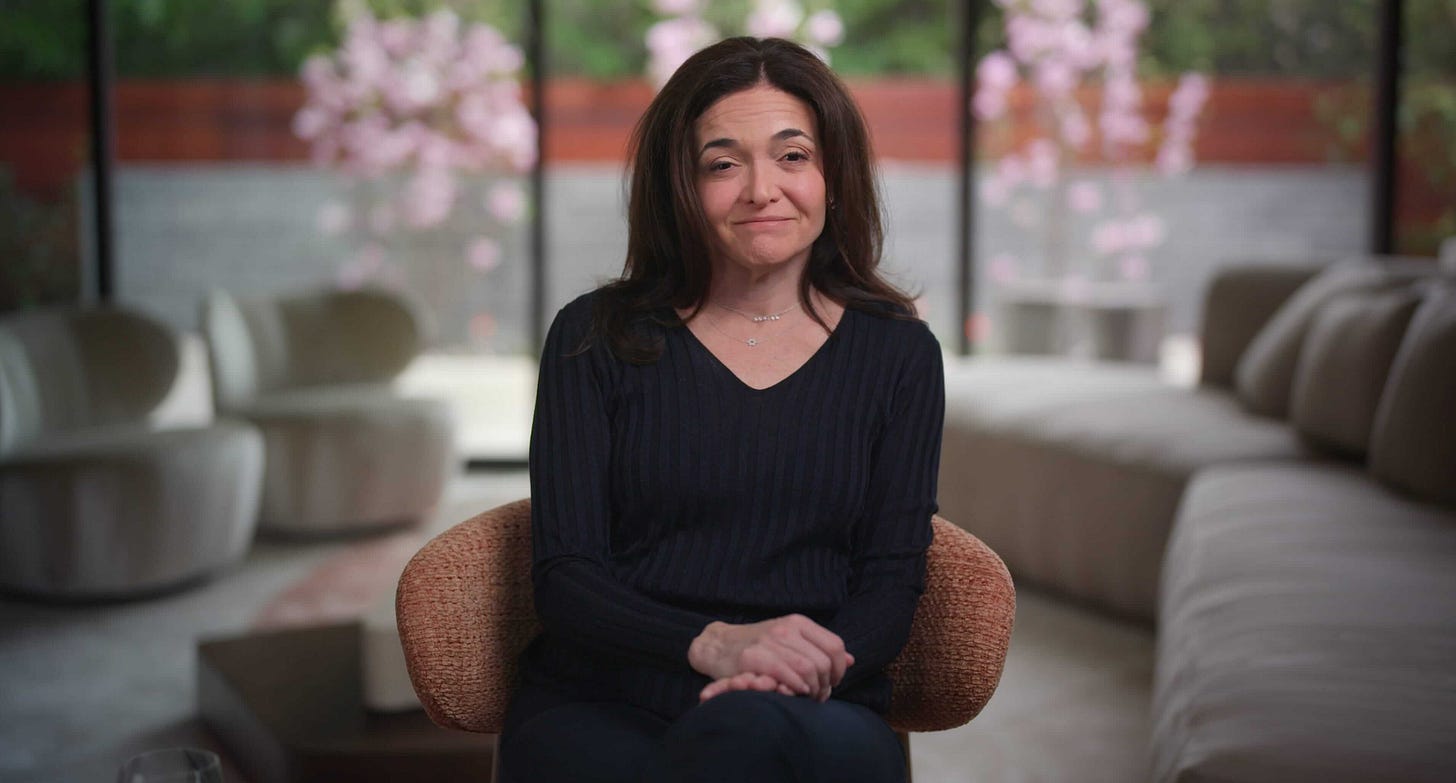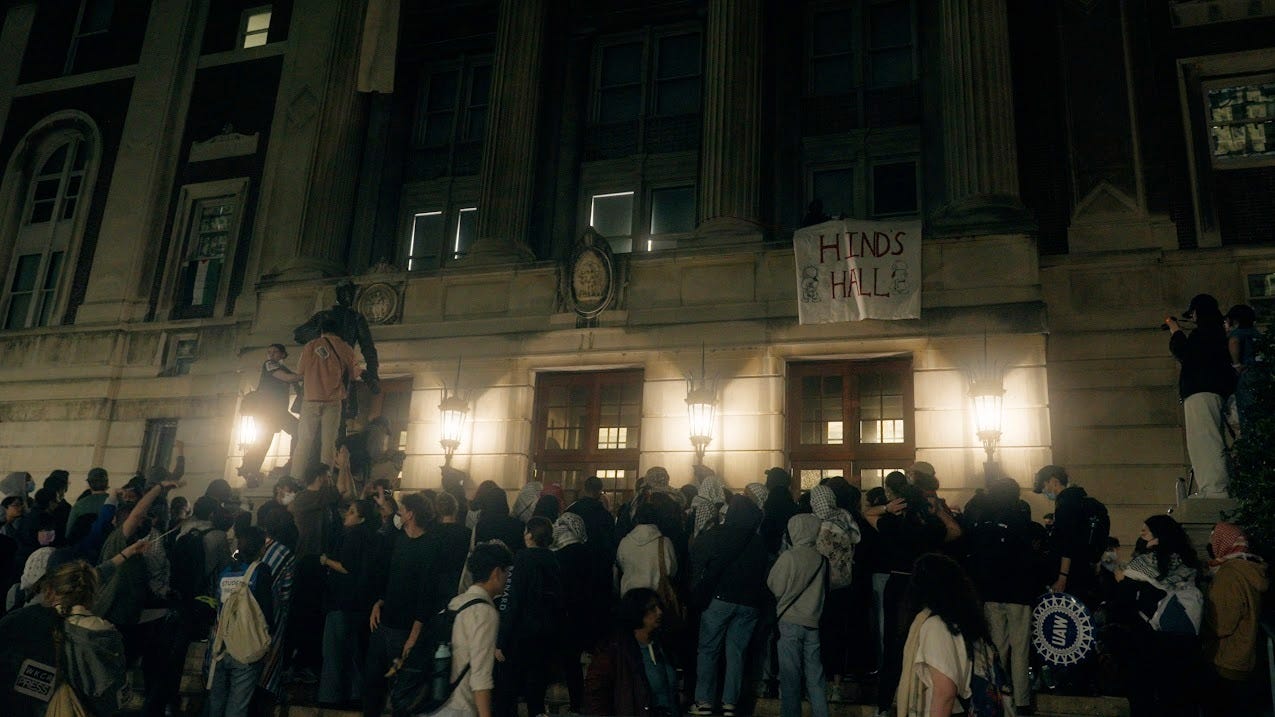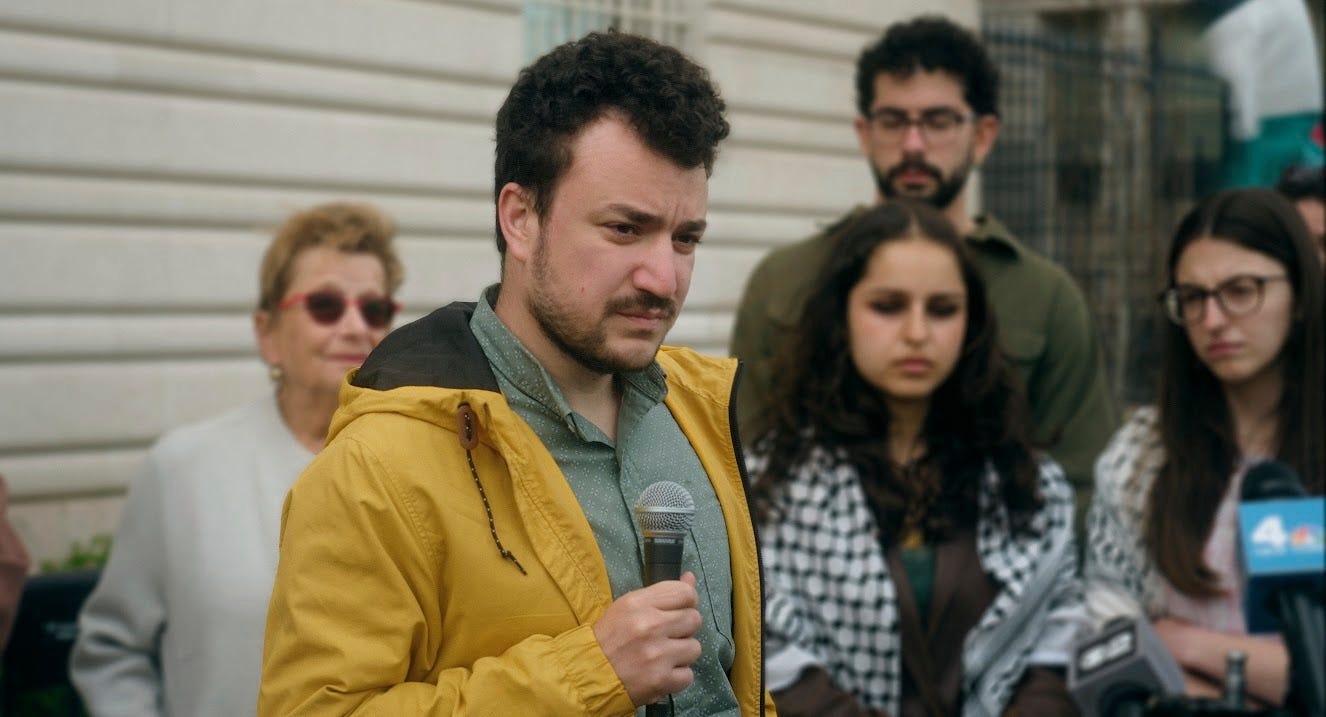'October 8' and 'The Encampments' have a lot more in common than you think
Two new documentaries show that when it comes to Israel/Palestine, it seems like everybody thinks the powers that be are aligned against them.
A pair of new documentaries are ostensibly about the same thing — the aftermath of the attack on Israel on October 7, the subsequent war, and the protests against that war, especially the ones on elite college campuses.
The two films, October 8 and The Encampments come at these events from opposite directions, with diametrically opposed worldviews. October 8 is about what the filmmakers describe as the explosion of antisemitism that followed the October 7 attacks, while The Encampments focuses on the pro-Palestine encampments that emerged on many college campuses in 2024 and the ugly battles that followed.
The vast, vast majority of people, from what I’ve seen so far, are going to see and like the film that agrees with their worldview, and most likely not even see the other one.
Both films, while they each have some virtues, are highly one-sided. But what’s shocking is just how much the two worldviews have in common, and how much they agree on certain things.
Mainly, the subjects, and presumably the filmmakers, of both October 8 and The Encampments have a strident belief that most major institutions are against them and their cause. Those institutions include: The motion picture industry, the mainstream media (most notably the New York Times and CNN), the Biden-Harris Administration and Harris-Walz presidential campaign, and the leadership of most major universities, especially Columbia.
The two sides speak the same language, after all.
Take Columbia, for instance.
The producers and participants in October 8, along with most people I know who consider themselves pro-Israel, believe that Columbia, along with other universities, was way too easy on the protesters, should have cleared the encampments much earlier, and are essentially on the side of the protests. It was this attitude that led to college presidents being hauled before Congress and, in some cases, being forced to resign. The Trump Administration agrees and is currently withholding hundreds of millions of dollars in research funding from that university.
But if you watch The Encampments… the Columbia administration is positioned as the main antagonist of the protesters and is seen as undermining the protests at every turn and refusing to take their demands seriously, before ultimately clearing them and letting the NYPD in to make arrests. In the worldview of that film, the leaders of Columbia are the primary antagonists, even more than Benjamin Netanyahu.
The same is true of the recent actions of the Democratic Party. One side believes Kamala Harris lost the 2024 election because she refused to call out Israel for genocide; the other is convinced that Harris lost because she didn’t sufficiently convince voters that she has Israel’s back. It seems clear, though, that Harris was hurt by both impressions- and not only because dishonest SuperPACs cut ads alleging both.
Is Hollywood biased for or against Israel? That might depend on whether you blame Rachel Zegler or Gal Gadot for the failure of Snow White- or whether you consider it a more significant event that Melissa Barrera was fired from the next Scream sequel, or that No Other Land won an Oscar. The reality is, there are loud and powerful factions in different precincts of Hollywood, on different sides of the conflict.
Are the anti-Israel protests about antisemitism, and full-throated support of violence? October 8 would have you believe that they’re entirely about that, while The Encampments would imply that there’s none. It seems like the truth is somewhere in the middle, because there’s definitely some.
If you’re on what could be described as “pro-Israel Twitter,” October 8 is like spending 90 minutes on your own feed. Just about every single person who’s prominent in that cohort, from Shai Davidai to Bari Weiss to Michael Rapaport, is featured as a talking head in the documentary, and if there’s a major campus protest viral video you remember from the past 18 months, it’s probably included here too.
Both docs feature the sort of noxious people who have emerged on both sides of the conflict, who I’ll call “post-October 7 influencers.” If you’ve ever heard someone articulate some version of “we marched for Black Lives Matter, so why won’t the Blacks march for us now?,” they’re probably featured in October 8.
My biggest beef with October 8 is that it centers American college students in the post-October 7 story, when there’s no reason for them to be centered. The war is there, it isn’t here. No one in America is dodging bombs or rockets like the people in Israel and Palestine are.
Plus, when a synagogue gets vandalized, and I open X to see pure, uncut anti-Jewish inventive, that’s for the most coming not from pro-Palestine protesters, but rather from the far right and neo-Nazis, people with a voice inside the current presidential administration.
In one particularly unfortunate moment in October 8, we see Facebook’s Sheryl Sandberg elevating herself to Anne Frank-like levels and describing asking a friend, “Would you hide me?” This is in horrible taste on several fronts, starting with Sandberg being a billionaire who likely has several houses and private jets she could “hide” in, and that the people getting disappeared by the federal government at the moment aren’t billionaire businesswomen, but pro-Palestine activists who committed no crimes but did write critical op-eds. Between this and the Careless People book, which depicts Sandberg as a foul, out-of-touch rich lady on par with Parker Posey’s character in The White Lotus, not a good week for her.
The Encampments is directed by Kei Pritsker and Michael T. Workman, while Macklemore is an executive producer. In addition to talking head interviews and viral videos, the film features a great deal more on-the-ground reporting, including some key moments of the clashes at Columbia last year. I’m convinced, as well, that a big part of No Other Land winning the Oscar is that the Academy’s documentary branch loves to honor docs in which filmmakers go straight into a war zone and put their lives on the line. The Encampments isn’t close to that, but it did capture some dramatic moments, as well as some history.
It is also pointed out, accurately, that it’s somewhat hypocritical for Columbia to lionize its own civil rights history, while cracking down on protests today, and even an occupation of the same building.
But that doesn’t mean the argumentation isn’t flawed here, too.
I have yet to hear a convincing argument as to what the encampments actually accomplished, or how they helped anyone in Palestine. The idea, at most campuses, was to demand that their university’s administrations divest, either from Israeli companies or from weapons manufacturers, and that demand failed just about everywhere. A few colleges agreed to hold a vote on divestment, as part of a deal to end the encampments, but that hasn’t really led to actual divestment, at least to the point where it would make any difference.
Did the encampments raise awareness? Did they help the participants feel better about themselves, and perhaps let people suffering in Palestine know someone was thinking about them? Sure, I guess so. But I’m not convinced that they helped. In fact, they probably made Donald Trump’s election more likely.
No, it should not be illegal to protest, and the government should not be arresting people who committed no crimes- including Mahmoud Khalil, the Columbia student activist leader who is featured in The Encampments.
No, the assumption should not be made that people, many of whom are sincerely concerned with the plight of the Palestinian people, are terrorists, or that they’re being paid off by foreign governments (this accusation, in particular, seems completely baseless.) But that doesn’t mean they’re right.
The director of October 8, Wendy Sachs, has since gone on a media tour, implying in interviews that Hollywood has acted against her film (“Why Did Hollywood Ghost a Movie About Antisemitism?” was the title of one podcast episode she appeared on.)
As readers of this Substack know, I see a lot of documentaries, and I interview a lot of documentary filmmakers. The vast majority have a great deal of trouble securing funding for their work. Their films often take years to produce, and once they’re completed, most of them open either in a tiny number of theaters or none at all.
October 8, last month, opened in more than 100 theaters, almost certainly the most of any documentary film this year. It was produced fairly quickly and extremely slickly and professionally, has the participation of multiple movie stars (including executive producer Debra Messing) and covered events that happened not that long ago.
If the entertainment industry was attempting to “ghost” October 8, it did an abysmal job of it.
It’s barely been eighteen months since the October 7 attacks, and the genre of documentaries on the subject is already getting quite crowded. Clearly, there’s a lot of interest, both on the part of filmmakers and audiences.
I think that fair-minded people should see both films, and discuss them with others, along with No Other Land, Israelism, We Will Dance Again, Supernova, and the numerous other documentaries about the conflict that have arrived since 2023. One called Torn, which will be featured in Philadelphia Jewish Film and Media’s upcoming Jewish Resilience Festival, might be the fairest one I’ve seen so far (I reviewed it here.)
But what you should not do, once again, is call for boycotts, screening cancellations, or to pull the leases of theaters showing a movie you don’t like.








Really enjoyed reading this survey of these two post-Oct. 7 documentaries, and the glimpse of the emergent genre as a whole.